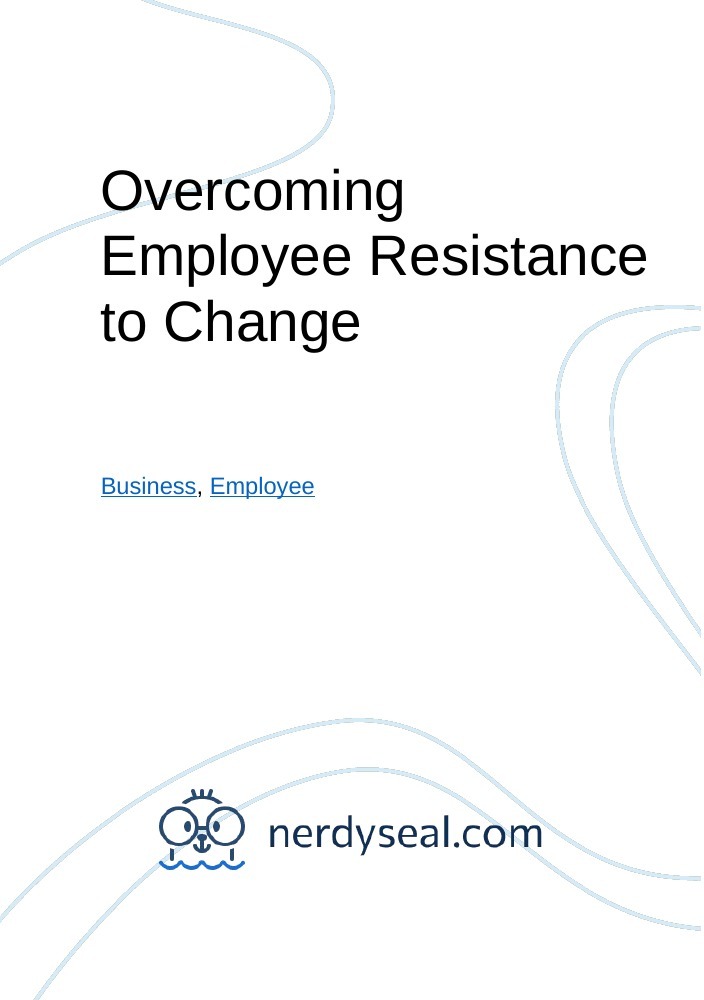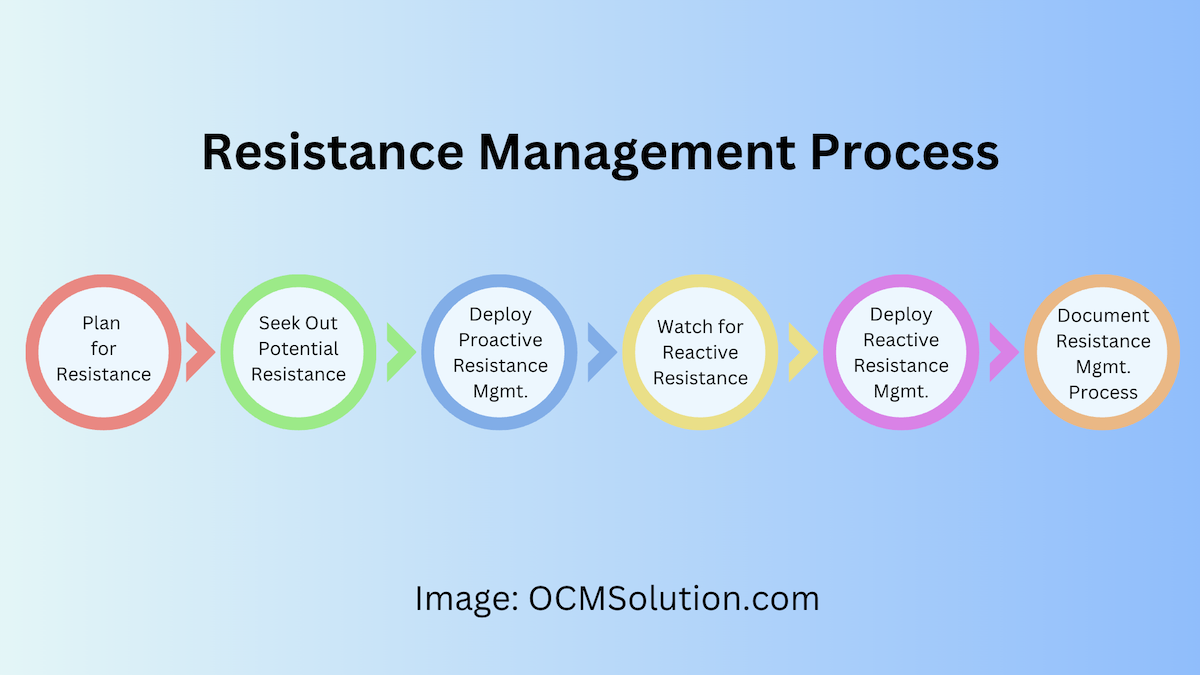Overcoming Employee Resistance To Change

Imagine a bustling office, the air thick with unspoken anxieties. New software gleams on desktops, promising efficiency, yet a palpable tension hangs in the balance. Whispers of "another new system?" and "I barely understand the last one!" circulate like a quiet storm, threatening to disrupt the very innovation it's meant to enhance.
This scenario, common across industries, highlights the challenge of overcoming employee resistance to change. Successfully navigating this resistance is crucial for organizations aiming to evolve and remain competitive in today's rapidly changing business landscape. Understanding the root causes of this resistance and implementing strategies to address it can significantly improve the adoption of new initiatives and foster a more adaptable and engaged workforce.
The Roots of Resistance
Employee resistance to change is rarely about simple stubbornness. More often, it stems from a complex interplay of factors, according to a 2023 report by Gallup on organizational change. These factors include fear of the unknown, perceived loss of control, and disruption of established routines.
Fear of the unknown can manifest as anxiety about job security or the ability to learn new skills. A perceived loss of control arises when employees feel excluded from decision-making processes. Finally, even seemingly minor disruptions to established routines can create friction and resentment.
Building a Bridge: Communication is Key
Effective communication is the cornerstone of managing change successfully. Transparency about the reasons behind the change, its potential impact, and the benefits it offers is essential. Regularly communicating updates, addressing concerns openly, and actively soliciting feedback can build trust and alleviate anxieties.
Consider the example of TechSolutions Inc., a software company that recently implemented a new project management system. According to Sarah Chen, the company's HR director, "We held multiple town hall meetings, created detailed training materials, and assigned change champions within each team to answer questions and provide support."
This proactive approach helped to mitigate resistance and ensure a smoother transition. By clearly articulating the system's benefits and providing ample opportunities for employees to voice their concerns, TechSolutions fostered a sense of ownership and buy-in.
Empowering Employees: A Sense of Ownership
Engaging employees in the change process is another powerful strategy. Involving them in the planning and implementation phases can foster a sense of ownership and reduce feelings of alienation. This can be achieved through surveys, focus groups, and pilot programs.
Dr. Emily Carter, an organizational psychologist specializing in change management, emphasizes the importance of empowerment. "When employees feel that their voices are heard and that their input is valued, they are more likely to embrace change," she states in her recent book, "Navigating the Tides of Change".
Allowing employees to contribute to the design of new processes or select the most suitable tools can significantly increase their acceptance of the change. This collaborative approach not only reduces resistance but also leverages the diverse perspectives and expertise within the workforce.
Training and Support: Equipping for Success
Providing adequate training and support is crucial for equipping employees with the skills and knowledge they need to adapt to new systems and processes. This training should be tailored to different learning styles and skill levels. This will ensure that everyone has the opportunity to succeed.
Ongoing support, such as mentoring programs or readily available help desks, can also help to address any challenges that arise after the initial implementation. Remember to celebrate successes along the way. Recognizing and rewarding employees who embrace change can reinforce positive behaviors and create a more adaptable organizational culture.
Looking Ahead: Embracing Continuous Change
In today's dynamic business environment, change is no longer a one-time event but a continuous process. Organizations must cultivate a culture of adaptability and resilience. This will allow them to thrive in the face of constant evolution.
By understanding the underlying causes of employee resistance and implementing strategies to address it proactively, organizations can unlock the full potential of their workforce and achieve sustainable success. The key lies in fostering open communication, empowering employees, and providing the necessary training and support. Change, when managed effectively, can be a catalyst for growth and innovation, propelling organizations towards a brighter future.


















